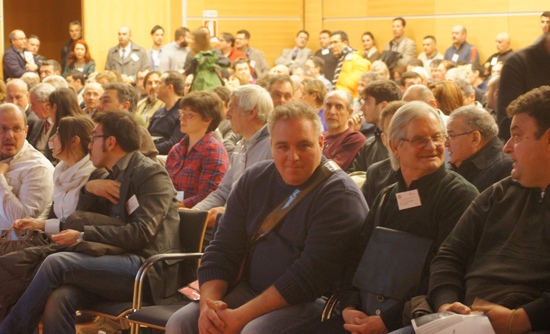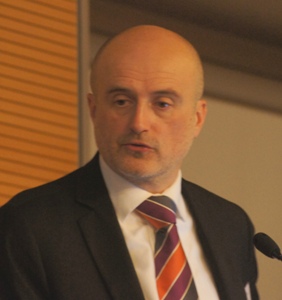On each afternoon at Disinfestando 2013 held in Rimini on 6 & 7 March there was a series of seminars. These proved highly popular and you needed to be in your seat in good time to avoid having to stand.
On the first day, the topics covered broad issues, such as the Biocidal Products Directive, which affect us all throughout Europe. Whereas, on day two the topics were more specific to the Italian market covering topics such as the new National Contract, the problems and opportunities related to the latest labour reform plus the role of the Vigilance Commission in connection with public tendering.
|
Speaking first on day one was Giuseppe Abello, director of Assocasa based in Rome. Formed in 1984 as part of Federchimica, this organisation represents companies involved in cleaning products, detergents and biocides. Mr Abello charted the background to the Biocidal Products Directive and went on to discuss the practical consequences of its implementation. The room remained totally packed for the presentation on the forthcoming European Standard for pest management service, commonly known as the CEN standard. Presented by Paolo Guerra, he was able to give an authoritative and enthusiastic overview speaking from his position as a member of the Italian Mirror Group. As a country, Italy has from the start embraced the opportunities presented with the creation of a clearly defined standard – certainly as a trade association, ANID, recognised the opportunities offered to raise professional standards. Paolo outlined the detailed the competence requirements for such topics as knowledge, equipment, documentation, supply and use of biocides. Advantages offered by CEN standard On a more practical level, the announcement of anticoagulant rodenticide resistance testing was also well received. However, the final presentation from Rita Di Lucy from the Environmental Protection Department in Rome met with a mixed reception. She detailed, at length, the treatments this department had undertaken to fight the threat posed by the Asian tiger mosquito (Aedes albopictus) in Rome. Criticism came from the audience, that rather than wait and treat the adult mosquitoes (which should they be infected could spread diseases such as dengue and Chikungunya fevers) the approach should be one of prevention using larvicides.
|
|
|
|
|





